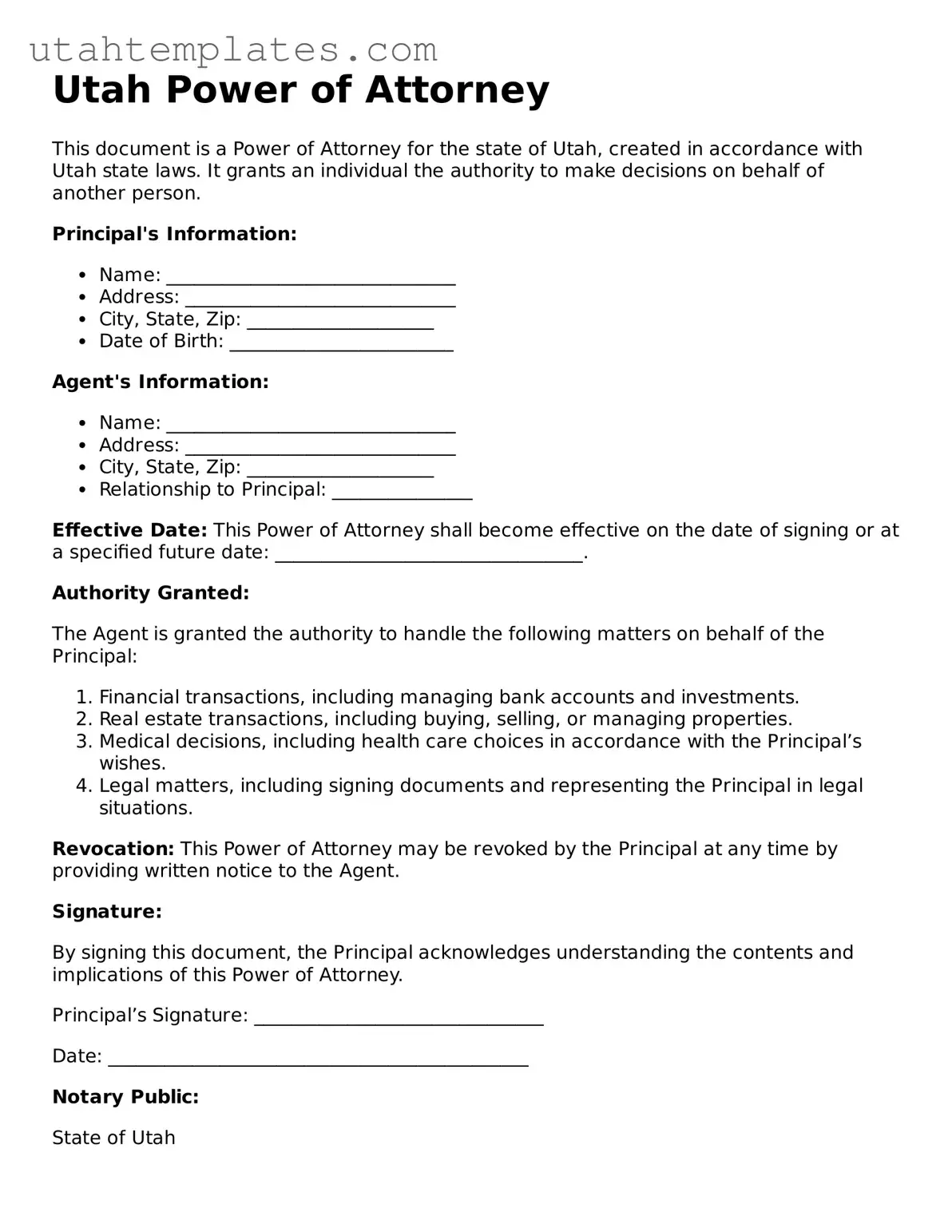Free Power of Attorney Form for Utah
The Utah Power of Attorney form is a legal document that grants an individual the authority to act on behalf of another person in financial or legal matters. This arrangement can provide essential support when someone is unable to manage their affairs due to various circumstances, such as illness or absence. Understanding the nuances of this form is crucial for ensuring that your rights and interests are protected.
Launch Power of Attorney Editor Here

Free Power of Attorney Form for Utah
Launch Power of Attorney Editor Here
Need to check this off quickly?
Fill out Power of Attorney online without dealing with paper.
Launch Power of Attorney Editor Here
or
Free PDF File
